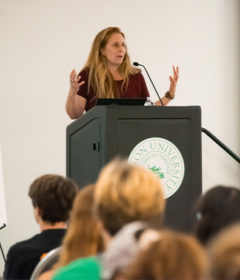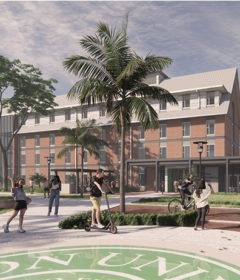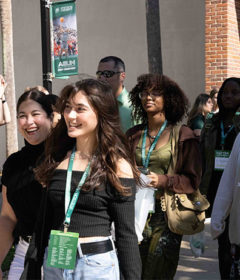Sparking the Conversation
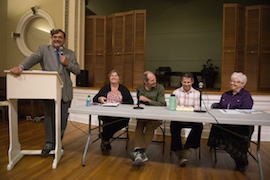
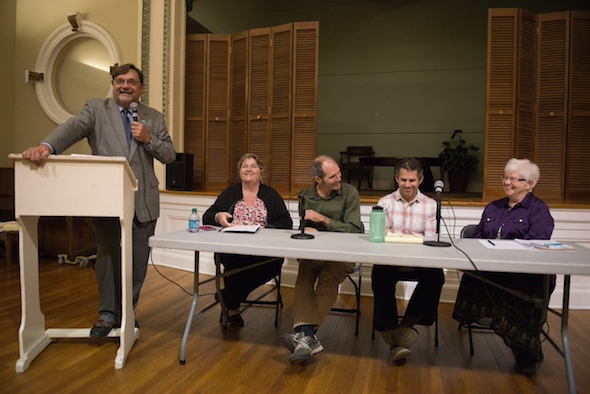
This story was edited Feb. 29, 2016
More than 250 local government officials, concerned citizens, academicians, journalists, students and environmental advocates packed Allen Hall on Feb. 16, to hear and be part of the significant conversation of protecting the environment by better understanding climate change and rising sea levels.
“As far as I know, this is the first public meeting of its kind in Volusia County to start a local conversation about the effects of climate change,” explained Clay Henderson, executive director for Stetson’s new Institute for Water and Environmental Resilience.
This “open dialogue” event regarding the recent Paris Climate Change Accords (COP21), was led by Stetson’s visiting Woodrow Wilson Fellow Joseph Treaster, a prize-winning reporter and University of Miami professor with a passionate expertise for protecting water sources.
Members of the expert panel included: Sister Pat Siemen, attorney and director of the Center for Earth Jurisprudence at Barry University School of Law; Jason Evans, Ph.D., assistant professor in Stetson’s Department of Environmental Science and Geography, and public policy expert on climate change issues in Florida; Chad Truxall, executive director of the Marine Discovery Center and Florida Master Naturalist instructor; and Dinah Pulver, award-winning environmental journalist with the Daytona Beach News-Journal.
THE BIG PICTURE
Sr. Siemen attended the COP21 and felt that the publicity and awareness raised was good, but it will be slow-moving to make meaningful action in governments across the globe.
“It was huge to get all 195 countries to agree (at the COP21) that climate change is real. They agreed to have a plan in place to reduce greenhouse gases in the next five years. But we need something more urgent and we can’t wait another five years,” she noted. “Our current environmental protection laws are not good enough. The environment has rights, too.”
Moderator Treaster, whose participation was made possible through Stetson University’s Brown Center for Faculty Innovation and Excellence, agreed. “It’s a slow goal. But we can’t give up. We have to have conversations just like this,” he said. “We know the science dictates us to see the sea level rise.”
“The warming of the oceans globally means more flooding will occur in streets, septic tanks then pulls that wastewater back out. Our drinking wells have ‘intrusion’ from salt water containments as the sea level rise emerges more inland,” explained Evans.
But this problem is not just a coastal issue, noted Pulver. “The increasing salt content will exacerbate problems for river life. The more the sea level rises, the more salt you’ll have in the rivers.”
WHAT CAN WE DO?
“We have to be willing to change our lifestyle more! Eat local, organic,” added Sr. Siemens. “We also need to include measures to conserve water in our legislation.”
Truxall agreed that prudent action is needed urgently.
“We need action now. We treat water as if it’s something we want to get rid of, so we need a new way of thinking about the value of water,” Truxall suggested. “People need to feel empowered when it comes to addressing climate change. We’re going to keep seeing these issues until the political scene changes.”
Evans proposed that, unlike some public-supported institutions that may restrict the dialogue, Stetson is the perfect place to launch the conversation.
“We have to talk about the science. Stetson University is a very good place for this dialogue because, as a private university, we can steer the conversation locally and nationally,” explained Evans. “I’ve found that once local government officials see the problem, they will believe. We just have to keep getting the facts and information out there.”
By Trish Wieland

